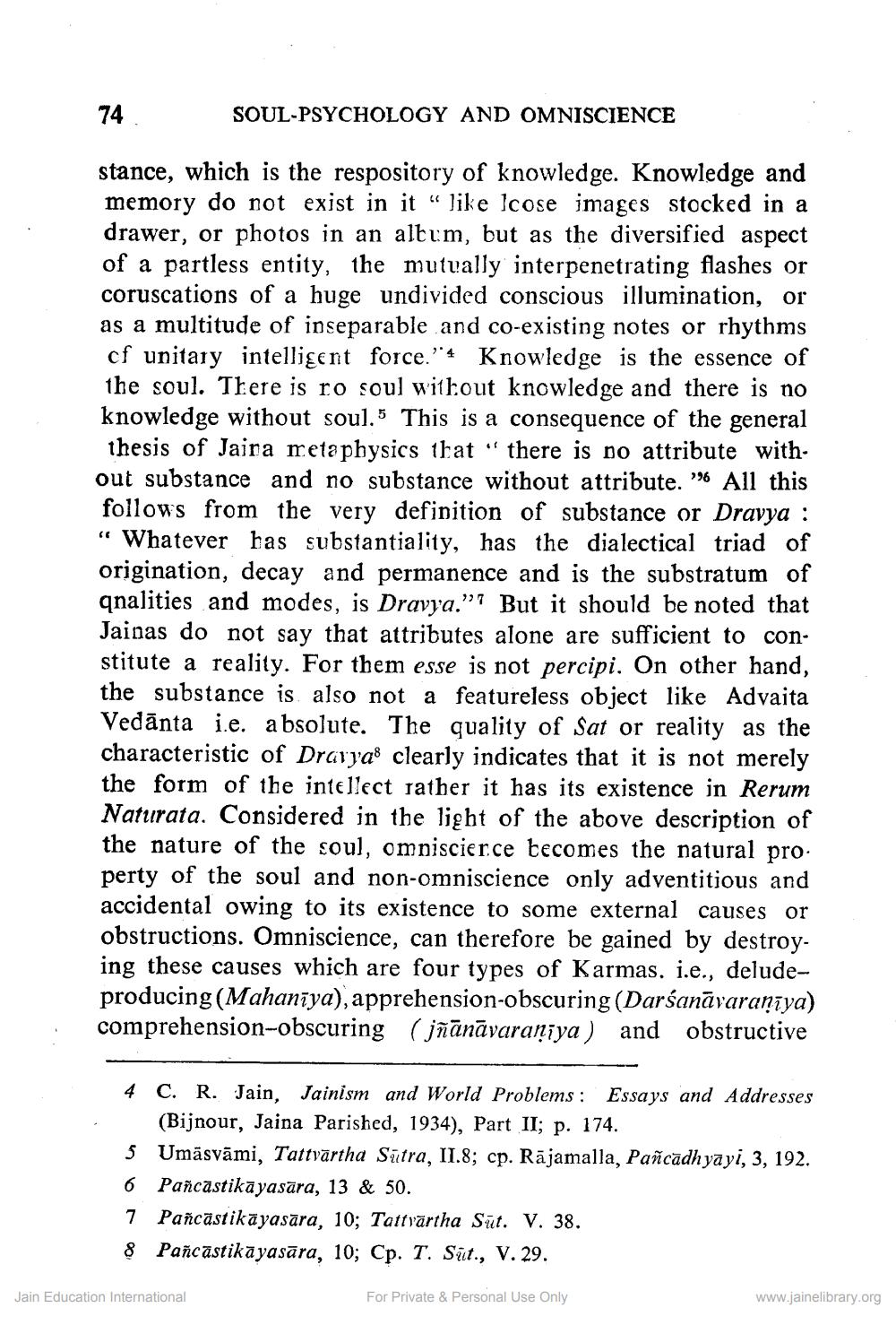________________
74.
SOUL-PSYCHOLOGY AND OMNISCIENCE
stance, which is the respository of knowledge. Knowledge and memory do not exist in it “like lcose images stocked in a drawer, or photos in an album, but as the diversified aspect of a partless entity, the mutually interpenetrating flashes or coruscations of a huge undivided conscious illumination, or as a multitude of inseparable and co-existing notes or rhythms cf unitary intelligent force."4 Knowledge is the essence of the soul. There is ro soul without knowledge and there is no knowledge without soul.5 This is a consequence of the general
thesis of Jaina metaphysics that "there is no attribute with out substance and no substance without attribute." All this follows from the very definition of substance or Dravya : “ Whatever has substantiality, has the dialectical triad of origination, decay and permanence and is the substratum of qnalities and modes, is Dravya.". But it should be noted that Jainas do not say that attributes alone are sufficient to constitute a reality. For them esse is not percipi. On other hand, the substance is also not a featureless object like Advaita Vedānta i.e. absolute. The quality of Sat or reality as the characteristic of Dravya clearly indicates that it is not merely the form of the intellect rather it has its existence in Rerum Naturata. Considered in the light of the above description of the nature of the coul, omniscierce becomes the natural pro. perty of the soul and non-omniscience only adventitious and accidental owing to its existence to some external causes or obstructions. Omniscience, can therefore be gained by destroying these causes which are four types of Karmas. i.e., deludeproducing (Mahanīya), apprehension-obscuring (Darsanāvaraṇīya) comprehension-obscuring (jñānāvaraṇīya) and obstructive
4 C. R. Jain. Jainism and World Problems : Essays and Addresses
(Bijnour, Jaina Parished, 1934), Part II; p. 174. 5 Umāsvāmi, Tattvārtha Sūtra, II.8; cp. Rājamalla, Pañcādhyayi, 3, 192. 6 Pañcāstikāyasāra, 13 & 50. 7 Pañcāstikāyasāra, 10; Tattvärtha Sūt. V. 38. 8 Pañcāstikāyasāra, 10; Cp. T. Sat., V. 29.
Jain Education International
For Private & Personal Use Only
www.jainelibrary.org




